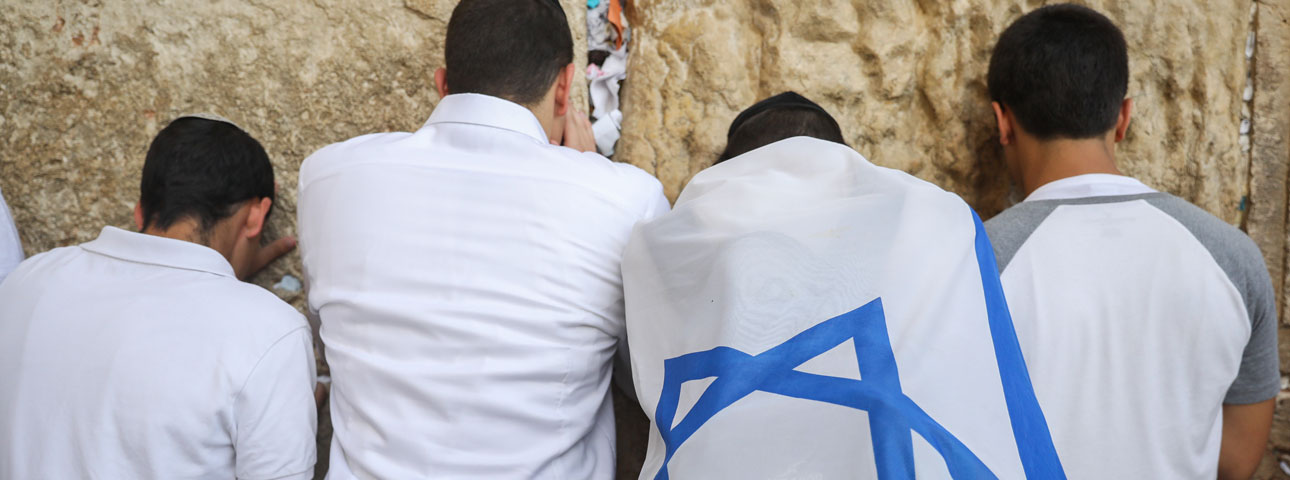Jewish or Democratic? We Mustn’t Choose Between Them
Recent elections have brought to fore the struggle between religion and state - the balance between the constitutional elecemtns and the place of religion. In this tug-of-war, a compromise can be the only victory.

Illustration | Flash 90
The recent elections were waged to a large extent over the issue of the relations between religion and state. As is often the case in election campaigns, this one exacerbated the already acute tensions that this issue routinely arouses, and demonstrated that even after 70 years Israel is still in the throes of a fierce conflict on the very character of the state: liberal and far-removed from its religious identity, or quasi-halachic. Even on the day after, with the results posted for all to see, we can say with certainty, that whatever government is formed, this clash has not been resolved. And that is the way it should be. The diverse communities making up Israel’s social mosaic hold radically different views of its desired Jewish character. A decision in any direction would leave large sectors of the population alienated from the State. So we may assume that this dispute is here to stay; if we want to go on living together, we must abandon the desire for a clear decision on this issue, and return to politics and public discourse based on ad hoc agreements and conflict management.
In Israel’s political history, more than one government has fallen due to a crisis related to religion and state. This includes the previous government and the one that never came into being and brought us to the recent pointless and unnecessary election. Nevertheless, these issues have never occupied center stage in election campaigns, since security and economic concerns have always overshadowed them. But this time was different, perhaps because of Avigdor Liberman, perhaps because it was a rerun election, perhaps because the center-left parties found it more comfortable to deal with these matters. Whatever the explanation, this time around, the questions on the very character of the state, the balance between its constitutional elements — the Jewish and the democratic — and the place of religion in the public domain came very much to the fore. The secular parties on the one hand, and the religious and ultra-Orthodox lists on the other, honed their messages to drive the point home. Much of the rhetoric was about whether Israel should or should not be a halachic state, with the campaign videos showing alarming scenes of what would happen if the other side — ultra-Orthodox or secular — came to power. Blue-White presented the threat that the country would be sold to the ultra-Orthodox for hard cash; United Torah Judaism brought us young children with side-curls under attack by a big bad secular Cossack.
Being in Israel during these last few weeks, full of such furious mutual hatred, were — how to put it — not fun. On the other hand, we can make many pitchers of lemonade from this lemon. Israeli society has been split and divided and wrestling about its character almost from the start. The issues of the relations between religion and state, even if they have taken on different hues, have not changed very much. But Israeli society has changed dramatically. First of all with regard to the balance of power: in the early decades there was one clear hegemonic group, and all the other groups — the right wing, the religious, the ultra-Orthodox — were marginalized. Today there is no clearly dominant sector. Left, center, right, secular, religious, Arabs — every one of these groups is large enough to exert significant influence, but not large enough to become the new hegemon. Along with this change, and perhaps resulting from it, the nature of Israeli politics has also changed — from the pursuit of consensus to a stubborn attempt to have the winner take it all.
These elections brought the differences in the perceptions of the different groups making up Israeli society as to the identity of the Jewish state into sharpest focus. It is clear to everyone here that the battle is real and serious and that, unfortunately, on some issues — the groups are separated by a deep abyss. What can we do? We could throw up our hands in despair and sit on the fence, or we could continue to take potshots across it. While a decision on this issue can be made if enough political power can be mustered up — this would be a Pyrrhic victory. It would be transient and leave parts of the nation feeling excluded and alienated. The best — and in fact only — choice, that will allow us to continue to live here together, is to give up the attempt to win, and instead — to sit down and talk to one another and try to reach consensus. First of all, about how to manage the conflict; but also, and even more importantly, about how we can reach agreement whenever possible and continue to live together despite the disagreements. The election results can be a catalyst for this change. They offer an opportunity, perhaps historic, to set up a very broad government that will decide these critically significant issues by means of discussion and by reaching agreements.
If indeed such a government comes into being, decisions on major issues of religion and state will be less cut and dry and more nuanced, and they will take longer to arrive at. However once they are agreed upon — it will be possible to bring back a status-quo, that will reduce the never-ending tensions and last for years to come.
The article was published in the Times in Israel.
